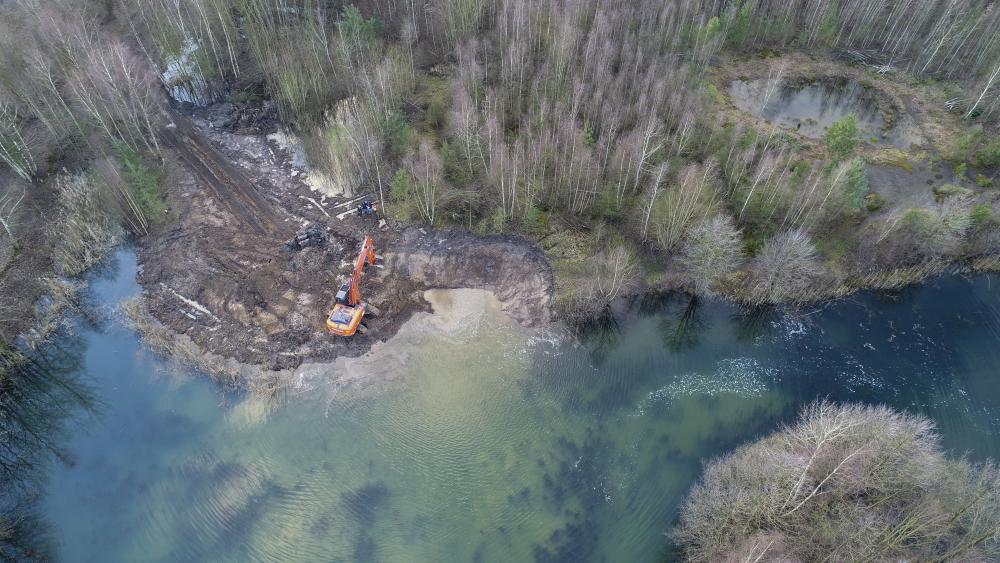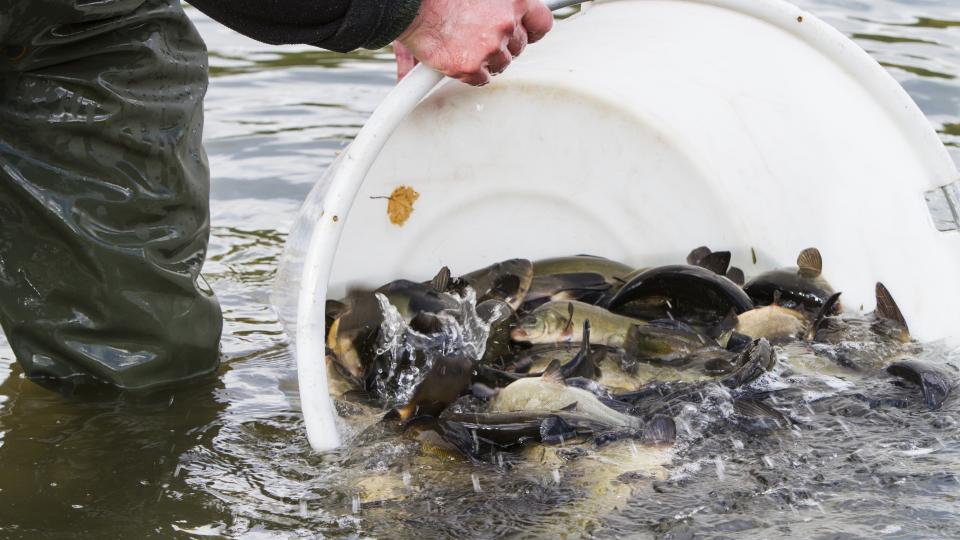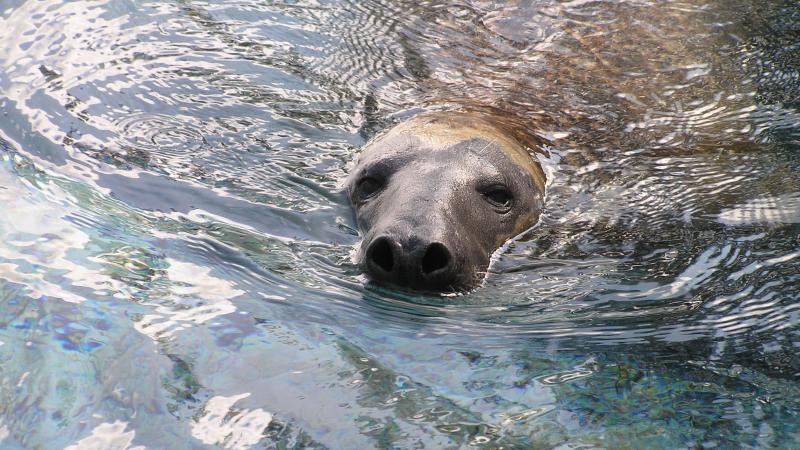
In the gravel pit lakes studied, shallow water zones were dredged - as important spawning grounds and refuges for juvenile fish. | Photo: Thomas Klefoth
Biodiversity is declining rapidly. Many conservation actions focus on single species. An alternative approach is to comprehensively improve ecological processes and habitats, thereby supporting entire species communities. This so-called ecosystem-based management is however rarely implemented because it is costly. There is also a lack of evidence that ecosystem-based habitat management is more effective than obvious alternatives, such as releasing animals to enhance stocks.
Important lesson for fish conservation
A research team based in Berlin, in close cooperation with numerous angling clubs organized in the Angler Association of Lower Saxony, has presented a groundbreaking study. Scientists and practitioners worked together to conduct a set of whole-lake experiments and assess the outcomes of ecosystem-based habitat enhancement versus fish stocking in 20 gravel pit lakes over a period of six years. In some of the lakes, additional shallow water zones were created. In other lakes, coarse wood bundles were added to enhance structural diversity. Other study lakes were stocked with five fish species of interest to fisheries; unmanipulated lakes served as controls. The study was based on a sample of more than 150,000 fish.
The key result: The creation of shallow water zones was the most effective method to enhance fish populations. These zones are ecologically important for many fish species, especially as spawning grounds and nursery areas for young fish. The introduction of coarse wood had only positive effects in selected lakes; fish stocking completely failed. "Restoring central ecological processes and habitats – ecosystem-based management – is likely to have stronger long-term effects for rebuilding fish species and populations than narrow, species-focused conservation actions," explained Johannes Radinger of the IGB, lead author of the study.
From the laboratory to jointly executed whole-lake experiments
Never before have fish communities been studied on such a large-scale set of whole-lake experiments involving numerous angling clubs and other practitioners. „In contrast to studies in the laboratory, field experiments that consider natural ecosystem variation as well as ecological and social interactions allow to gain robust evidence about the effectiveness of management measures," explained Thomas Klefoth, professor at the Hochschule Bremen and co-initiator of the project. "To include multiple gravel pit lakes in the experiments was only possible through close cooperation between research and practice. The transdisciplinary approach contributed to a rethinking of fish stocking and fostered the acceptance of more sustainable, ecosystem-based management alternatives," summarized study leader Robert Arlinghaus, Professor of Integrative Fisheries Management at the HU and the IGB.
Two key messages for freshwater conservation and fisheries management
The study highlights two central messages that are relevant beyond gravel pit lakes to other aquatic ecosystems as well: restoring ecological processes has a more sustainable impact on communities and species than narrow, species-focused conservation actions. Additionally, freshwater biodiversity conservation is most effective when user groups, such as angling clubs, take responsibility and are supported in their efforts by authorities, associations, and science. This approach allows for the reconciliation of conservation and use, as both species and fisheries benefit from ecosystem-based management.

In the "Baggersee" project, 20 gravel pit lakes in Lower Saxony were ecologically improved or stocked with fish in whole-lake experiments. | Photo: Florian Möllers

Fish stocking failed to increase fish populations. | Photo: Florian Möllers

Deadwood bundles provide hiding places for fish, but were only successful in some of the lakes. | Photo: Florian Möllers








